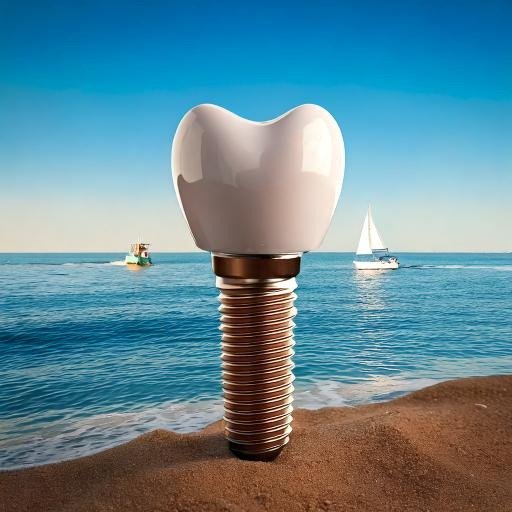Undergoing a root canal treatment can raise many questions, particularly about post-treatment discomfort. In this comprehensive guide, we’ll discuss how long pain typically lasts after a root canal, its causes, and how to manage it effectively for a smooth recovery. If you are experiencing a toothache after a root canal in Horley you might be concerned, but it’s often a natural part of the healing process. Understanding how to manage this discomfort and knowing when it’s time to seek help can make recovery smoother and less stressful. In this guide, we’ll explore everything you need to know, from remedies and recovery tips to signs that warrant further attention.
How Long Does Pain Last After a Root Canal Treatment?
Pain after a root canal is a common concern, but it’s often temporary and manageable. Most patients experience mild to moderate discomfort for 2–7 days, with the first 48 hours being the most noticeable. This pain usually decreases as the surrounding tissues heal.
In rare cases, pain can persist longer or worsen, potentially indicating complications such as infection, an incomplete procedure, or bite misalignment. Understanding the causes and expected duration of post-treatment pain helps patients prepare and manage their recovery effectively.
Main Causes of Pain After a Root Canal Treatment
Pain after a root canal can result from several factors, all of which are part of the healing process or indicate issues that require attention:
Inflammation in the Surrounding Tissues
The process of cleaning and shaping the root canals can irritate the surrounding tissue. This inflammation is a natural response to the procedure and subsides as the area heals.Residual Infection
In some cases, bacteria may remain in the canal system, leading to persistent infection and pain. Additional treatment, such as retreatment or antibiotics, may be necessary.Temporary Nerve Sensitivity
Although the tooth’s nerve is removed during the procedure, nearby nerves can remain sensitive, especially when biting or applying pressure.High Restorations
If the crown or filling placed after the root canal is too high, it can create bite imbalances, causing discomfort that needs adjustment.Post-Operative Swelling
Mild swelling in the surrounding gum tissue can contribute to pain but typically resolves within a few days.
Is It Normal to Feel Pain After a Root Canal?
It is entirely normal to feel some level of pain or discomfort after a root canal. This discomfort is a natural part of the healing process as the tissues surrounding the treated tooth recover. Pain is typically mild to moderate and can be managed with over-the-counter pain relief.
However, persistent or worsening pain may indicate an issue that requires attention. If symptoms such as severe swelling, fever, or throbbing pain arise, contact your dentist promptly for further evaluation.
How Long Does Post-Treatment Pain Typically Last?
Post-treatment pain usually follows a predictable pattern:
- First 48 Hours: Discomfort is most noticeable as the tissue responds to the procedure.
- Day 3–7: Pain gradually diminishes, and sensitivity reduces.
- Beyond 7 Days: Any persistent pain or sensitivity should be evaluated by a dentist to ensure proper healing.
The exact duration depends on factors such as the complexity of the procedure, the individual’s healing response, and pre-existing conditions.
Remedies to Relieve Pain After a Root Canal
To ensure a comfortable recovery, consider the following remedies:
- Painkillers: Use ibuprofen or acetaminophen as recommended by your dentist.
- Cold Compress: Apply a cold compress to reduce swelling and numb pain.
- Soft Foods: Stick to soft foods to avoid putting pressure on the treated tooth.
- Saltwater Rinse: Rinse gently with warm salt water to soothe the area and keep it clean.
- Follow-Up Appointments: Attend scheduled check-ups to monitor healing.
When to Worry About Pain After a Root Canal
It’s normal to feel some discomfort after a root canal, but certain symptoms could indicate a problem. Here’s when you should contact your dentist:
Pain That Persists Beyond a Week
If you’re still experiencing a toothache after a root canal in Horley more than seven days later, it might be a sign of an unresolved issue, such as residual infection or incomplete cleaning of the canals.Swelling That Does Not Subside
Some swelling is expected, but persistent or worsening swelling may indicate an infection that needs immediate attention.Fever or Signs of Infection
A fever, alongside redness or pus near the treated area, is a clear indication of an infection requiring urgent care.Severe Sensitivity or Pain While Biting
If biting down causes sharp pain, the filling or crown may be too high, leading to bite misalignment. This can usually be resolved with a quick adjustment by your dentist.Loose or Damaged Restoration
A crown or filling that feels loose or becomes dislodged needs to be repaired to protect the tooth from further damage.
Never hesitate to reach out to your dentist if you’re unsure. Prompt evaluation ensures small issues don’t become larger complications.
Tips for a Quick Recovery After a Root Canal
Recovering from a root canal doesn’t have to be a daunting process. With the right approach, you can heal effectively and return to your daily routine with minimal discomfort.
Follow Your Dentist’s Instructions
After your procedure, your dentist will provide detailed aftercare instructions. This may include advice on when to eat, how to clean your teeth, and what to avoid in the days following treatment. Adhering to these guidelines is crucial for preventing complications.Avoid Hard and Chewy Foods
Stick to a soft diet for the first few days. Foods like soup, mashed potatoes, and yogurt are gentle on the treated area and prevent unnecessary strain on your tooth.Maintain Good Oral Hygiene
Keep the area clean by brushing gently and avoiding the use of the treated tooth while chewing. Regular flossing and rinsing with an antibacterial mouthwash will help prevent infection.Rest and Take It Easy
Give your body time to heal by avoiding strenuous activities. Resting allows the treated area to recover faster and reduces the likelihood of prolonged discomfort.Monitor Your Pain Levels
Mild discomfort is expected, but if you experience a persistent toothache after a root canal in Horley, it may be a sign to check in with your dentist.
Why Are Root Canals Important for Oral Health?
Root canals save teeth that would otherwise need extraction, preserving natural function and preventing issues such as shifting teeth and bone loss.
Common Misconceptions About Root Canal Treatment
Many patients fear root canals due to outdated beliefs about pain. Modern techniques ensure that the procedure is no more uncomfortable than a standard filling.
How to Prevent the Need for Future Root Canals
Preventive care, such as regular check-ups, good oral hygiene, and avoiding sugary foods, can reduce the risk of decay and infection, lowering the likelihood of needing a root canal in the future.
Recovering from a root canal doesn’t have to be overwhelming. By following these tips, trying effective remedies, and knowing when to seek help, you can ensure a smooth recovery. If you experience a toothache after a root canal in Horley that persists or worsens, reach out to your dentist immediately for guidance. Prioritizing your oral health will help you return to a pain-free, confident smile in no time.





